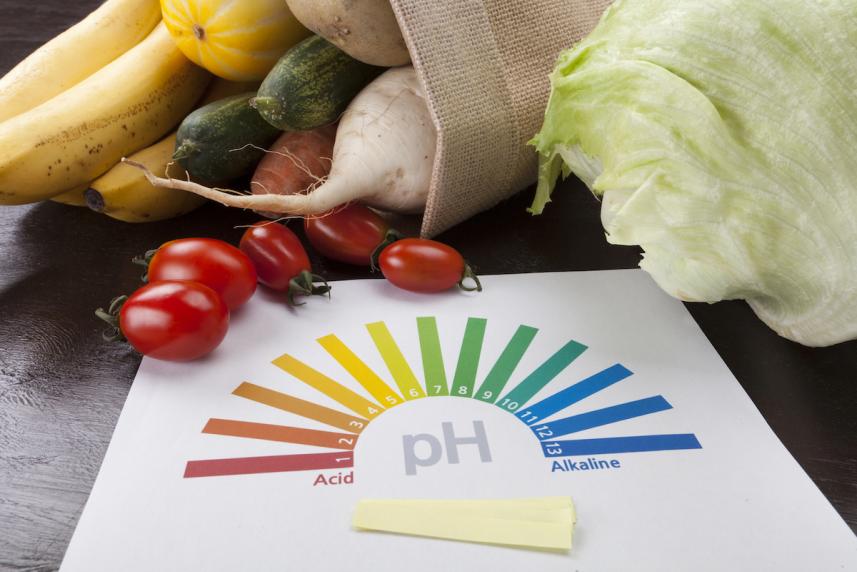Could your diet be too acidic?
Avoid serious health risks with a pH-balanced diet.

Mom was right: a balanced diet is essential, and yes, high school chemistry will come in handy someday. Studies show a diet that isn’t pH-balanced can have some serious consequences for your health. (In case you need a refresher, pH is a measure of acidity (<7 on the scale) and alkalinity (>7).) A French study found that the more acidic your diet, the higher your risk for type 2 diabetes. This finding held true for people with body mass indexes both in the normal and overweight ranges. Other studies have shown that high levels of acid in the diet can have significant effects on kidney health in patients with kidney disease—even leading to kidney failure.
The pH Scale of Foods
What can be confusing is that a food like a lemon, which may taste quite acidic, is at the opposite end of the spectrum. Researchers aren’t worried about foods that taste acidic like citrus, coffee, and vinegars. They’re worried about foods that produce acid in the body. Hard and processed cheeses are at the most acidic end of the scale, followed by meat, poultry, dairy products, caffeine, sugar, and salt. Fruits and vegetables are at the alkaline end.
The Effects of Acid
“We think that there are a few potential mechanisms,” says Deidra Crews, MD, a nephrologist at Johns Hopkins and author of a study looking at kidneys. “When you have acid in your blood stream it can be converted over into ammonium, and that directly can injure the kidneys.” She says too much acid could also activate a response in the kidneys that causes their tiny blood vessels to constrict and cause damage. Certain types of kidney stones are also more likely to form in an acidic environment, Crews says. But besides your kidneys and diabetes, another concern is bone health. “Studies do show that if you take in high doses of acid-forming foods, your body will release minerals in order to neutralize it,” says Toby Amidor, MS, RD, nutrition expert and author of The Greek Yogurt Kitchen. “If your diet is low in these minerals, your body will delve into minerals stored in your bones. If this happens frequently, it can lead to brittle bones or osteoporosis.”
Your Kitchen, The Chem Lab
The main problem is “most folks don’t get the recommended amount of daily fruits and vegetables. These foods are alkaline and will provide the body with the vitamins and minerals it needs to naturally neutralize acidic foods,” Amidor says, but eating ONLY fruits and vegetables isn’t enough - they need to be balanced with lean proteins, low-fat dairy, whole grains, and healthy fats. “Eating a balanced diet with plenty of fruits and vegetables and the recommended portions of whole grains and lean protein will provide the body with the nutrients it needs in order to neutralize everything,” she says. “No need to avoid anything—just eat well-balanced meals, which is tough enough.”


